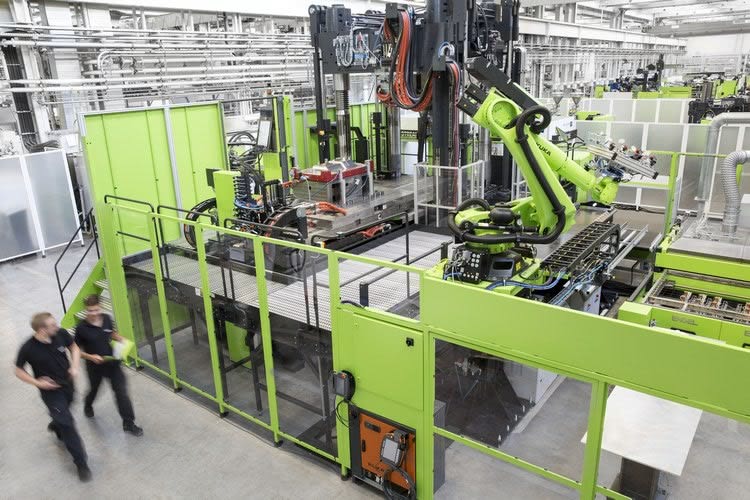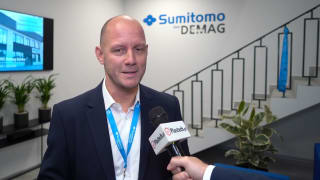Dr. Engleder: The roadmap helps to increase awareness and, therefore, will strengthen the trend to use recycled materials. This goes hand in hand with the processors’ increasing requirements regarding product efficiency and product quality of the used recyclates, which on the other hand will accelerate new developments in this area. As a machine manufacturer and system solver, we are challenged to increase the stability of the manufacturing processes, as well as the flexibility of the machines and plants.
Are functional integration and circular economy incompatible? The efficiency that is gained by the former is lost again during complex recycling.
Dr. Engleder: Functional integration and ecological awareness are not mutually exclusive. However, it always depends on the material composition. When parts are made of only one kind of plastic, or maybe of one kind of plastic plus fibre reinforcement, then material recycling is indeed possible. When two different plastics are mixed, however, because you want to obtain certain properties, at least thermal processing, that means burning, remains an option. If you consider that most of the oil production is being immediately burnt, you can view the plastic product as an efficient intermediate step.
What role does circular economy play with regards to Industry 4.0?
Dr. Engleder: Industry 4.0 is in many ways an enabler for closed resource cycles. I have already given an example: The increasing intelligence of injection moulding machines, the self-optimising production which is a basic feature of the smart factory. Overall, Industry 4.0 is about connectivity, the exchange of information between machines and production systems, production locations; but also between the companies along the value chain. Starting with material suppliers and machine and plant manufacturers, over processors up to consumers and even further to the recyclers, which again deliver materials, thereby closing the chain. Industry 4.0 leads to a closer collaboration of the companies along this chain. This way, all aspects of a new development can be considered from the beginning. That is exactly the precondition for even more efficient and sustainable material cycles.

In its technology centre for lightweight composites in St. Valentin, Austria, ENGEL works more strongly on thermoplastic-based solutions. These have the advantage that the products can be more easily recycled at the end of their life cycle.
Source: VDMA Plastics and Rubber Machinery




